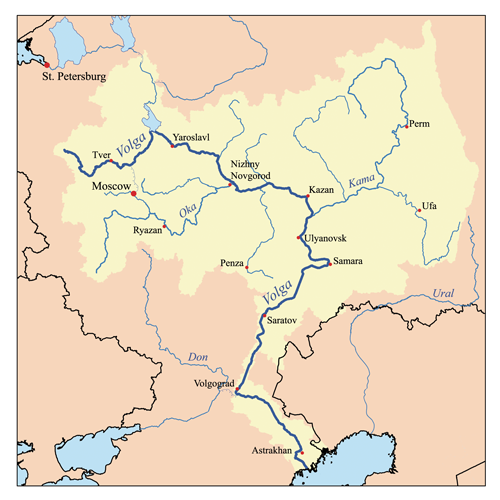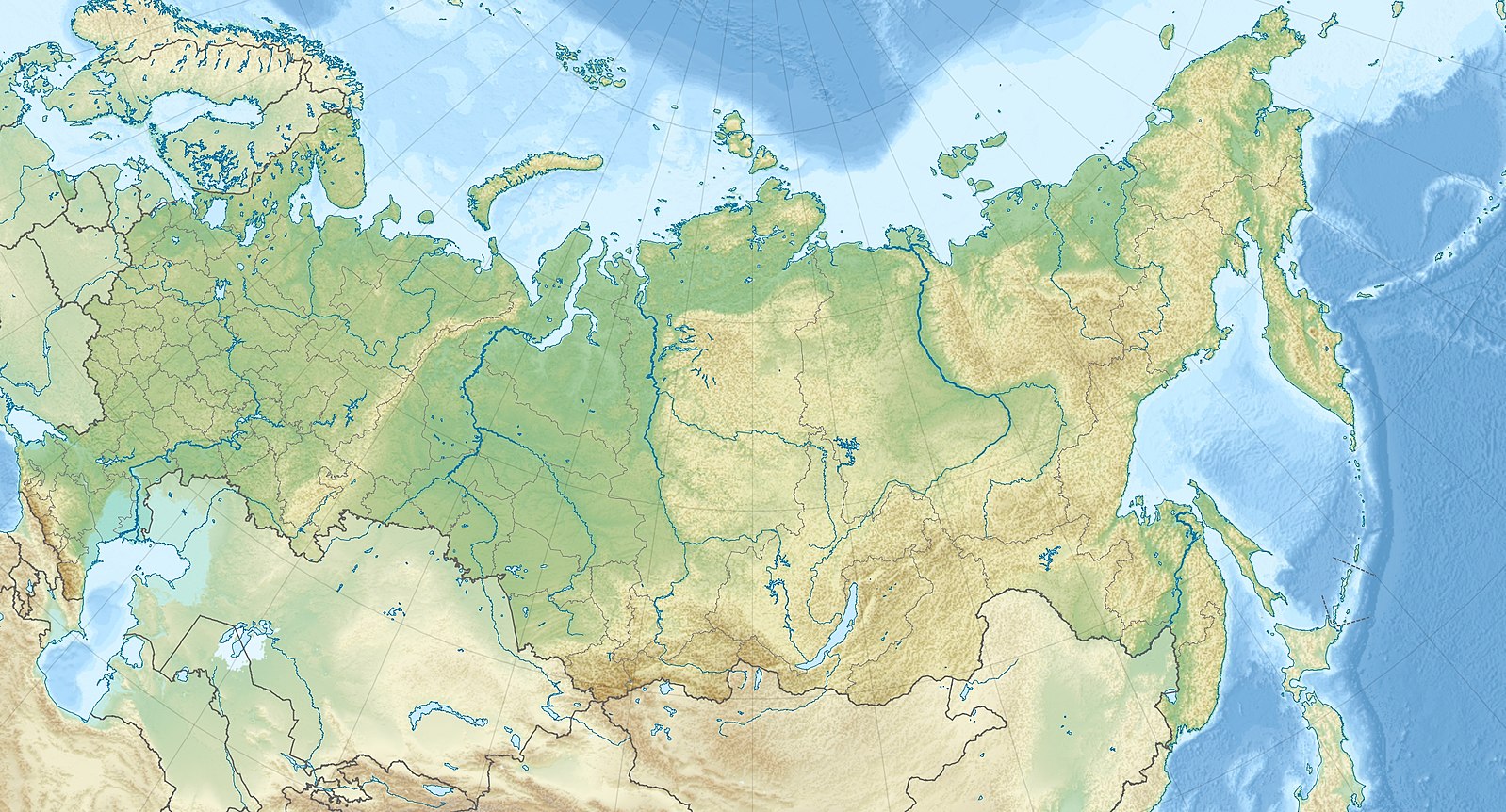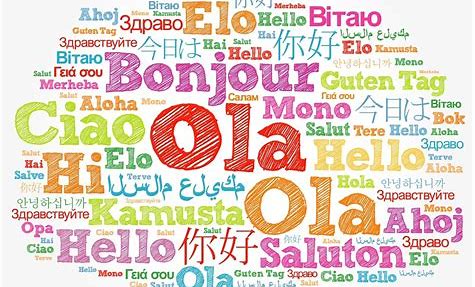
The Russian Federation is the biggest country in the world that encompasses the large area from west to east.
Russia consists of 85 federal subjects that are constituent members of the Federation. All federal subjects have equal federal rights in terms of representation in the Federation Council (upper house of the Federal Assembly).
There are 6 types of federal subjects—22 republics, 9 krays, 46 oblasts, 3 federal cities, 1 autonomous oblast, and 4 autonomous okrugs.
People who live in Russia are called Russians; but there are also about 160 other ethnic groups. While Russian is the official language, more than 100 languages are spoken by its peoples. The majority of Russians identify with the Eastern Orthodox (Christian) religion; but Judaism, Islam, and Buddhism are also practiced in Russia.
The Russian language uses the Cyrillic alphabet, with 33 letters. These letters are derived from an old Slavic alphabet developed when Cyril and Methodius spread Christianity to the southern Slavic people in the 9th century. If you’re traveling in Russia, it helps to know which letters in the Cyrillic alphabet are analogous to Latin letters. This makes reading signs and maps easier, even if you can’t speak the language.
Russian language itself is a Slavic language and shares some root words and sounds with other Slavic languages.
The size and diversity of the country allows regions in Russia to maintain specific cultural elements that could be not typical of other areas.
Thanks to the range of diversity in Russian regions, any traveller can find many different aspects of Russian life, from its cosmopolitan cities to its traditional rural villages.
The two most distant points in Russia are about 8,000 km apart. Russia spans 11 time zones.
The gigantic size of Russia and the remoteness of a large number of areas from the sea result in the predominance of the humid continental climate, which is prevalent in all parts of the country apart from the tundra and the extreme southwest.
Most of Northern European Russia and Siberia has a subarctic climate, with extremely severe winters with the lowest temperature recorded of 71°C below zero.
Winters in most parts of the country usually accompanies with snow. 
Each and every city in Russia its own unique culture. Moscow is a Russian capital city where nearly 12 million people live. In Moscow there are lots of important symbols of Russian culture, such as the Kremlin, Red Square, St. Basil’s Cathedral, the Tretyakov Gallery, beautiful parks, the Moscow river and an amazing underground. Another big city, St. Petersburg or Peter, which used to be the capital of the Russian Empire from 1713-1918. Peter is unofficially known as a “second capital” which is a UNESCO World Heritage site with more than 200 museums, 2 000 libraries, and 4 000 monuments.
Besides the two main cities, there are a lot of other cities that deserve attention. Along the longest river in Europe, the Volga River, there are cities such as Tver, Yaroslavl, Nizhny Novgorod, Kazan, Ulyanovsk, Samara, Saratov, Volgograd and Astrakhan that preserve elements of ancient Russia
You can also find hot places in Russia where people usually spend holidays and relax next to the Black Sea. For example, the coastal part of Krasnodar Krai in cities like Sochi, Anapa, Gelendgic, Tuapse and many more small villages. Thanks to a humid subtropical climate with mild and wet winters this region attracts tourists not only because of its mild climate, but also it has beautiful places to visit including mountains where you can enjoy viewing and sports.
Lovers of remote places would love the Siberia region and its Trains-Siberian railway route also known as “8 days on a train from Moscow to Vladivostok”. There are only short stops between the points and during this long journey you can experience Russian culture talking to Russian people, seeing Russian nature – forests, mountains, fields and rivers.

Russian food and drink are an essential part of life in Russia. Russian food is nutritious and diverse; it is passed through generations.Special holiday foods in Russia such as “Kulich” (bakery) and “Paska” (sweet cottage cheese) that are cooked for Easter; “Zimny salad” (salad made of vegetables and meat) that are cooked for New Year’s Eve. Russians like preserving food (pickles, jams, conserved mushrooms) that is eaten during long, cold winters. Most people are familiar with Russian vodka, however, people are not Vodka drinkers as it is believed among people around the world; but instead, Russians are keen on home made compotes, herbal tea, coffee, diary products (there are lots of types of sour milk products like razhenka, kefir, bifidok, prostokvasha and others).
Russian people are always hospitable, welcoming and friendly. If you have a Russian friend it means that this is a friend forever.
If you come to visit a Russian friend, you will be always fed and given a shelter. In the street, if you are lost, you can always ask people for a direction. Be ready to practice your Russian in this case, as most people in Russia do not speak other languages. Even if you do not speak the Russian language, you can still ask people any question and they will be happy to helpusing gesticulation.
Russian families are a traditional type of a family. Both the mother and father usually work, and children go to school to prepare them for university or college. The Russian grandmother and grandfather play an important role in children’a upbringing. They help parents to look after kids while they are at work. Grandparents are usually curators of memories and traditions, teachers, baker of favourite comfort foods. Kids in Russia very often have several hobbies and they attend additional schools called “Kruzhok” after their everyday lessons. They do a variety of activities such as painting, singing, dancing, craft, sport or improve their knowledge of school subjects.
Russian families sometimes keep a dacha, or summer cottage, where they escape for the weekends or the summer and where they keep vegetable gardens and fruit trees.
Russian names differ from English ones. Russian full name usually contains three names first name, middle name (which is a person’s father’s name) and a family name.
Russian culture is often tradition-driven. Traditions are in everything from how many flowers to give a woman (the more the merrier, but always give an odd number of flowers as even numbers are for funerals) to how to welcome guests (with bread and salt).
Standard Western holidays such as Christmas, New Year’s Eve, and Easter are celebrated in Russia, as well as special days Victory Day (May 9) and International Women’s Day (March 8) that Russian cherish a lot. Russian holidays also uniquely recognise Russian achievements and events; for example, Cosmonaut Day (April 12) celebrates Russia’s achievements in space exploration. In spring, Maslenitsa celebrates the end of winter.
Russia has one of the great literary cultures and languages. Most people are familiar with Leo Tolstoy who wrote War and Peace and Fyodor Dostoevsky who wrote Crime and Punishment and others like Anton Chekhov and Alexander Pushkin. Russians take their literature very seriously, and many Russians can easily recite passages from famous poems and verses. You should definitely memorise a little about a few Russian writers and poets to really impress your Russian friends.
Russian handcrafts such as a matryshka doll, finely decorated lacquer boxes have always been a memorable gift and home decorations.


